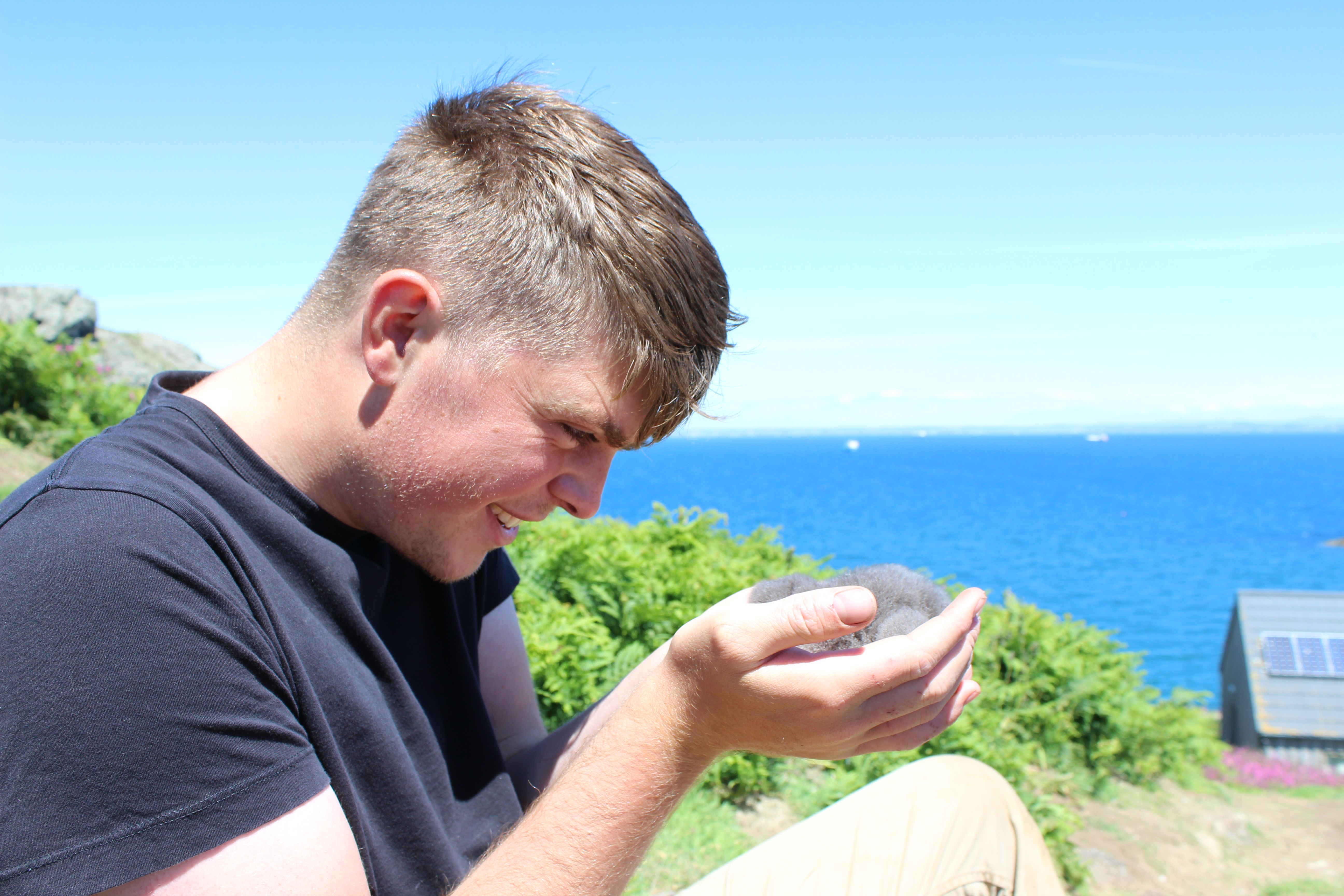
Luckily I was met at the landing in North Haven by Ollie Padget, an Oxford PhD student also working on the Shearwaters whom I had got to know the previous term, and along with Marwa his research assistant we headed towards the research accommodation that would be my home for the next few months. After a whirlwind tour of the island we just about had time for dinner before I got my first taste of a Shearwater colony at night. Manx Shearwaters are not strictly nocturnal birds but are forced to return to their burrows at night to avoid predation by the brutish Great Black-backed Gulls that also reside on the island. From May to July the night sky is filled with an ethereal cacophony of Shearwaters as hundreds of thousands of birds fill the darkness with their eerie wailing calls. I had hear recordings of these before but nothing could prepare me for the sheer volume of noise produced by the birds as they whizzed, screaming through the night sky, the grandeur of the Milkyway overhead providing a backdrop adequate for the grandeur of the experience. Over the next couple of weeks I went about setting up my study colonies, finding new burrows using playback tapes to provoke a response from incubating birds, before he first chicks hatched on June 24th. This was a momentous occasion and the sight of that first, unbelievably adorable, ball of grey fluff raised the spirits of the team considerably. Over the next few weeks more and more birds hatched and before I knew it I was weighing and taking the wing lengths of over 100 birds a day, a labour intensive task to be undertaken in all but the worst of weathers. Seeing the progression of my birds from 45g balls of fluff to huge 500g fully feathered fledglings was an experience that I feel incredibly privileged to have experienced and when the chicks started fledge in September I felt a strange mixture of pride and sadness that I can only imagine a parent feels when their child leaves home (Ok I may have become slightly attached). My project taught me a lot about data collection and was a real acid test of whether I was suited for field research. It also taught me that science is a fluid organic process during which progress is informed by what is akin to a trial and error process and where collecting data ultimately opens up as many new questions as it provides answers.
What really made the summer so life-changing for me however was the wealth of life experiences I obtained outside of my project, from spending a summer on an isolated community where everything, including food, has to be brought on to the island by boat. Spending time living with incredibly passionate PhD students has inspired me to consider postgraduate study as a future option that I definitely want to undertake. They allowed me to get involved with exciting projects using tracking devices to monitor the foraging areas of the Shearwaters and though this involved a lot of late nights, it was an invaluable experience of the possibilities opened up by PhD study. I also got my first real taste of handling birds on Skomer under the tutelage of Ros Green and Jason Moss this has inspired me to take up bird ringing in the future and expand my ornithological knowledge in a completely novel direction. Above all watching the dynamic seasonal progression on an island so rich in wildlife from pupping Grey Seals, to Peregrine Falcons, to one of the richest assemblages of breeding Seabirds on Earth was a truly once in a lifetime experience that is difficult to truly do justice to in words. Add to that the dramatic topography and stark windswept beauty of the island and the warm, passionate, diverse array of people that make up the community and its easy to see why the island has captured the imagination of so many people down the years. I’m already planning my return visit next summer; I don’t know why I was so nervous in the first place!
By Liam Langley (3rd Year Biology Student)
Read more about Biology at Brasenose and see the Skomer blog.
